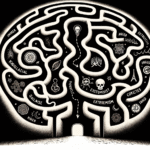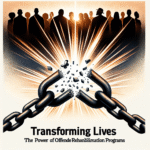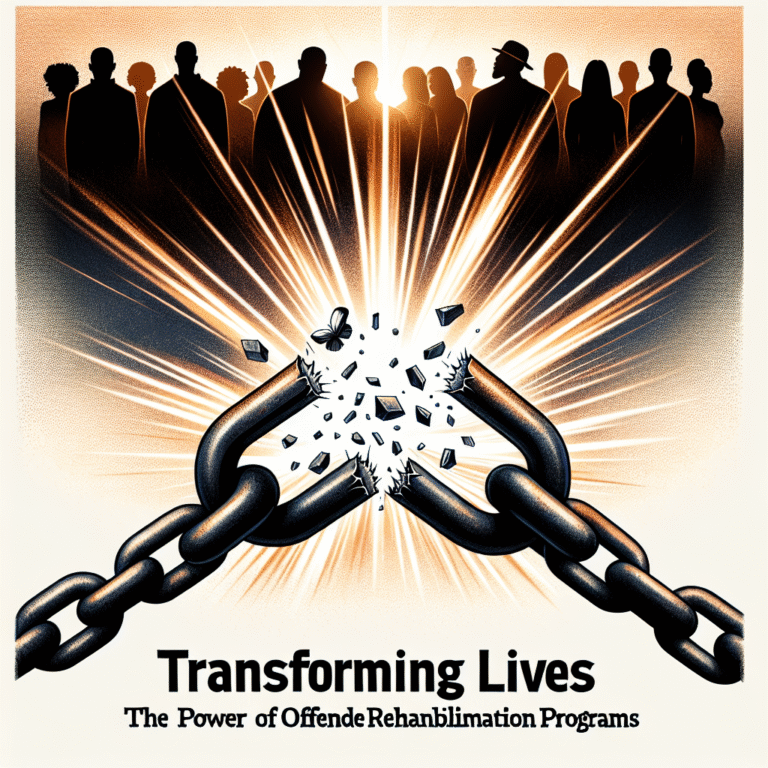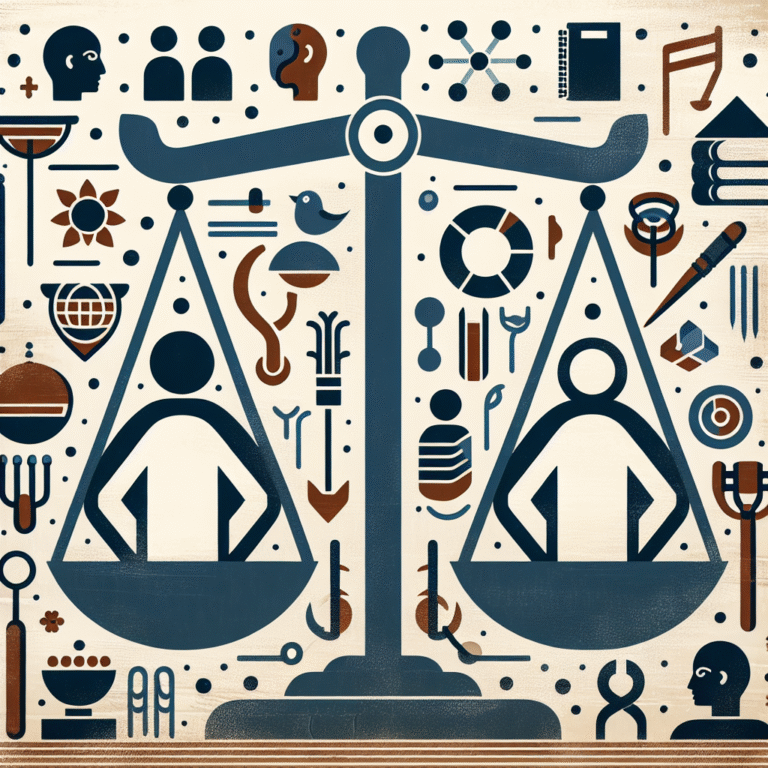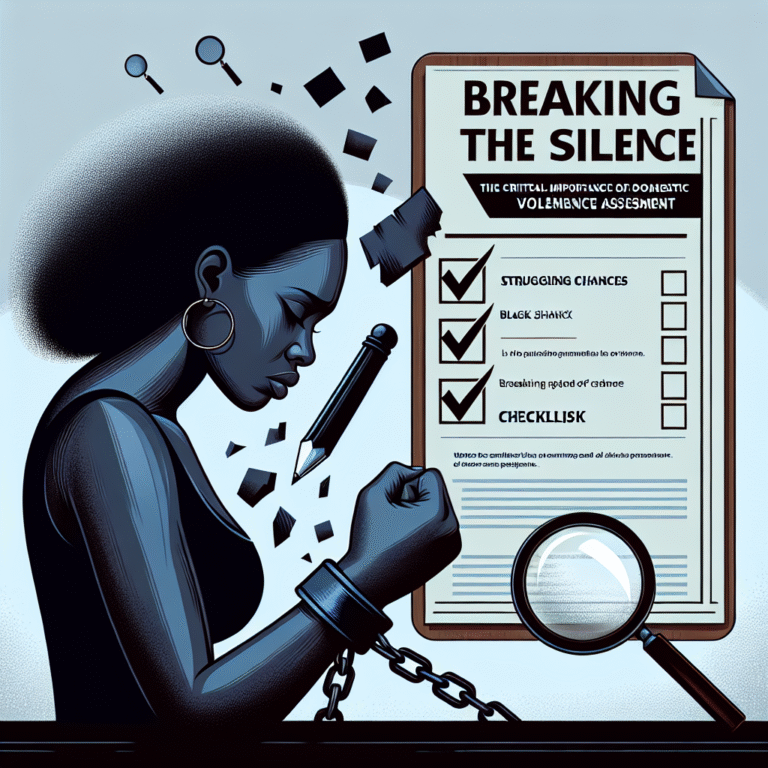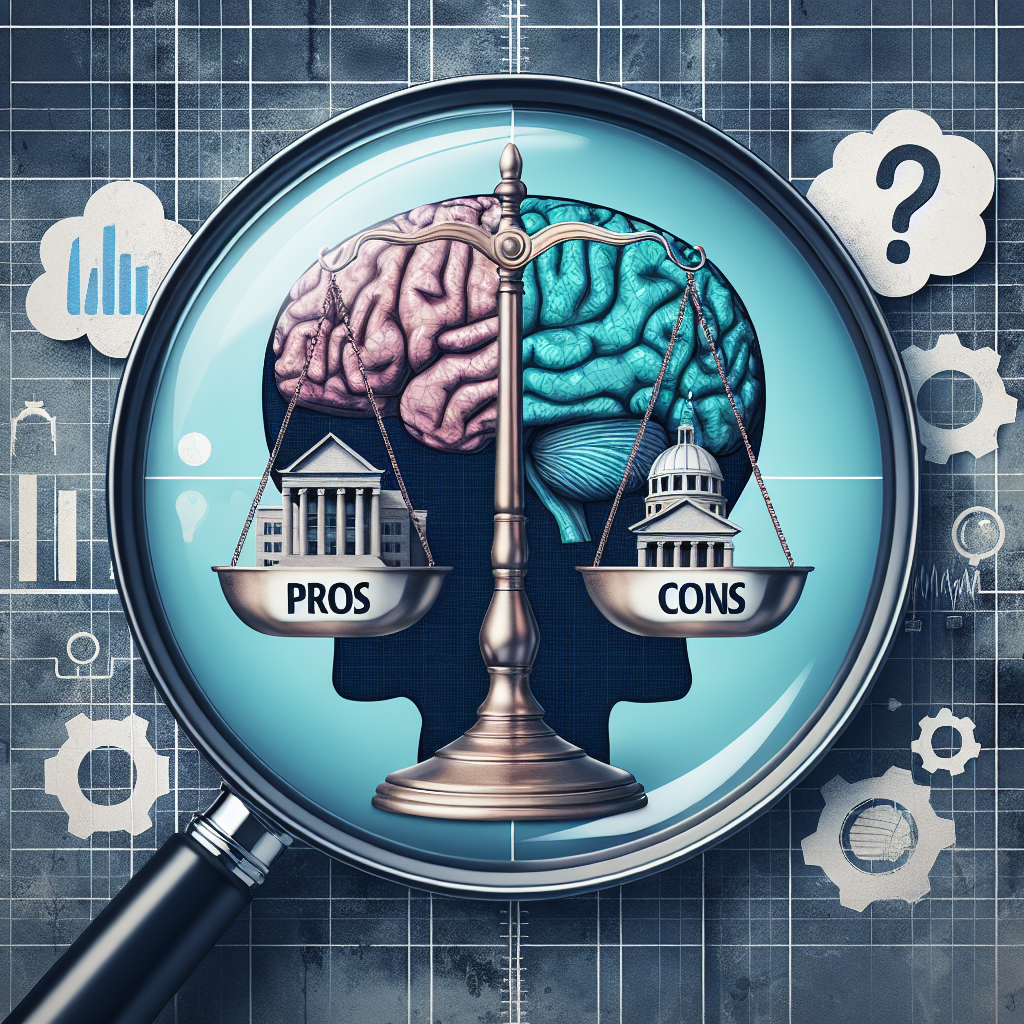
Introduction
In a world where mental health issues increasingly intersect with the criminal justice system, the emergence of mental health courts marks a profound shift in how we view rehabilitation and justice. With an estimated 20% of inmates in the U.S. suffering from serious mental illness, examining the efficacy of mental health courts—pros, cons, and potential—has never been more crucial. These specialized courts aim to divert individuals struggling with mental health challenges away from traditional incarceration and into treatment programs, with the ultimate goal of reducing recidivism and improving public safety.
The importance of this initiative can’t be understated: it reflects a growing recognition that mental health treatment, rather than punitive measures, can lead to better outcomes for both individuals and society. In this article, we’ll delve deep into the workings of mental health courts, highlighting their benefits, examining their drawbacks, and exploring the vast potential they hold for reforming the system.
Understanding Mental Health Courts
What Are Mental Health Courts?
Mental health courts are specialized court systems designed to handle cases involving defendants with mental health issues. These courts aim to address the root causes of criminal behavior, emphasizing rehabilitation over punishment. By creating a tailored approach, mental health courts provide participants with access to treatment, support services, and ongoing supervision.
Historical Context
The inception of mental health courts in the United States can be traced back to the late 1990s. The first court was established in 1997 in Miami, Florida, as a response to the growing acknowledgment of mental health issues within the criminal justice system. Since then, the model has proliferated across the country, adapting to regional needs and legal frameworks.
Core Components of Mental Health Courts
Diverse Team: Mental health courts often comprise judges, mental health professionals, social workers, and probation officers who collaborate to create a comprehensive treatment plan for each participant.
Eligibility Criteria: Not everyone is eligible for mental health court; defendants with certain serious offenses or those deemed a public safety risk often do not qualify. Typically, those with misdemeanor charges and a documented mental health diagnosis are considered.
- Treatment Focus: Instead of incarceration, participants receive mental health treatment, counseling, and support services to address their underlying issues and navigate day-to-day challenges.
Case Study: Miami-Dade County Mental Health Court
In examining the efficacy of mental health courts, the Miami-Dade County Mental Health Court offers valuable insights into how these systems can potentially alter trajectories for individuals facing charges. Established in 1997, Miami’s court emphasizes therapeutic jurisprudence, focusing on healing rather than punishment.
Outcome Data
Over the years, Miami’s mental health court has demonstrated significant success in reducing recidivism rates among participants. A study conducted by the University of South Florida found that participants had a 70% lower rate of reconviction compared to a control group. This data underscores the potential of the mental health court model to create lasting change.
Pros of Mental Health Courts
1. Enhanced Treatment Access
One of the most significant advantages of mental health courts is their ability to facilitate access to critical mental health services. Often, individuals in the criminal justice system may not seek treatment without the court’s intervention, as many face barriers like stigma, lack of insurance, or insufficient resources.
2. Reduction in Recidivism
Numerous studies indicate that mental health courts tend to lower recidivism rates among participants. These courts focus on addressing the underlying mental health issues, allowing individuals to reintegrate more smoothly into society. For instance, a study from the Council of State Governments found that graduates from mental health courts were 11% less likely to re-offend compared to those in traditional court settings.
3. Resource Efficiency
By reducing recidivism rates and providing therapy rather than incarceration, mental health courts can alleviate the financial burden on the criminal justice system. A 2016 report by the National Institute of Justice revealed that investing in mental health treatment results in significant savings by reducing costs associated with incarceration and re-arrest.
4. Community Safety
Mental health courts aim to improve public safety. By addressing the mental health issues of participants, these courts contribute to lower crime rates in communities. Individuals who receive treatment are often less likely to engage in behaviors that lead to crime.
5. Tailored Approach
Mental health courts offer personalized treatment plans tailored to the specific needs of each participant. This individualized approach fosters greater engagement in treatment, enhancing the chances of success.
Case Study: Seattle Mental Health Court
Seattle’s mental health court provides another stark example of the potential benefits of this system. In its program, participants are not only required to complete treatment but also engage with mental health navigators for ongoing support.
Effectiveness and Outcomes
A comprehensive evaluation showed that participants had an 80% success rate in completing their treatment plans, leading to significant increases in employment rates and housing stability. This data reinforces the argument for mental health courts in promoting rehabilitation over retributive justice.
Cons of Mental Health Courts
1. Limited Eligibility
Mental health courts typically have strict eligibility requirements, effectively excluding a large portion of individuals with mental health issues who may benefit from the program. This limitation raises concerns about equal access to justice and treatment.
2. Potential Coercion
Critics of mental health courts argue that participation may not always be voluntary. Some individuals may feel pressured to accept treatment to avoid harsher penalties, leading to questions about the genuineness of consent.
3. Variability in Success Rates
Not all mental health courts are created equal. The efficacy of these courts varies widely depending on numerous factors, including funding, available services, and judicial training. In some locations, limited resources may hinder effective treatment, detracting from the courts’ overall goals.
4. Lack of Standardization
The mental health court model lacks a national standard, leading to significant disparities in how courts operate and the quality of services offered. Some mental health courts may focus more on punitive measures rather than rehabilitation, undermining their intended purpose.
5. Financial Constraints
While mental health courts can be resource-efficient in the long run, the initial investment in personnel and infrastructure can be significant. Many jurisdictions may struggle to allocate the necessary funding, hindering the establishment and operation of effective mental health courts.
Case Study: San Francisco Mental Health Court
San Francisco’s mental health court, a mixed bag in terms of outcomes, has highlighted some of these challenges. With inconsistent funding and a fluctuating number of participating mental health professionals, the court has struggled to provide a comprehensive treatment experience.
Lessons Learned
Reports suggest that many participants found themselves without adequate support, and a review of two years’ worth of cases indicated a 40% recidivism rate among graduates. This data starkly contrasts with more effective programs’ outcomes and reinforces the necessity of adequate resources and training.
The Potential for Reform and Change
Innovations in Mental Health Courts
As mental health courts evolve, there is tremendous potential for innovation. Integrating technology into the treatment process may enhance engagement and effectiveness. For instance, telehealth services could expand access to counseling and therapy, especially for those in rural areas.
Cross-Disciplinary Collaboration
The potential for partnerships between mental health courts and various organizations—including universities, community organizations, and law enforcement—exists. These collaborations can enhance the breadth and depth of services offered, addressing the multifaceted needs of participants.
Greater Public Awareness
Raising public awareness about mental health issues is critical. By advocating for mental health courts and educating the community about mental illness, we can diminish stigma and encourage more individuals to seek help before reaching the criminal justice system.
Legislative Changes
For mental health courts to reach their full potential, policymakers must prioritize mental health reform. Legislative changes that provide increased funding for mental health services, expand eligibility criteria, and standardize practices across jurisdictions are imperative.
Case Study: New York City Problem-Solving Courts
New York City has adopted a broader problem-solving court model that encompasses mental health issues alongside drug addiction and homelessness. By prioritizing mental health treatment within these courts, New York aims to address a comprehensive spectrum of underlying issues contributing to criminal behavior.
Impact and Future Directions
Initial results indicate a promising decrease in recidivism rates, with a notable increase in participants accessing long-term care services. As the city continues to explore this model, it may serve as a blueprint for other jurisdictions looking to combine multiple aspects of social support within the justice system.
Conclusion
In examining the efficacy of mental health courts—pros, cons, and potential—it is clear that these specialized systems hold significant promise in reshaping the criminal justice landscape. While they present numerous advantages, including enhanced treatment access and reduced recidivism, they are not without challenges. Continued efforts to improve funding, access, and the overall model are necessary for maximizing their impact.
As we move forward, embracing mental health courts as an integral part of our justice system can pave the way for transformative change. By prioritizing rehabilitation over punishment and recognizing the fundamental humanity of those struggling with mental health issues, we can foster a more just and compassionate society.
FAQs
1. What types of cases do mental health courts handle?
Mental health courts primarily deal with misdemeanor and non-violent felony cases involving defendants diagnosed with serious mental illnesses.
2. How do mental health courts differ from traditional courts?
Mental health courts focus on rehabilitation and treatment rather than punishment. They provide tailored plans, services, and ongoing support for individuals with mental health issues.
3. Are mental health courts effective in reducing recidivism?
Yes, research indicates that mental health courts often lead to significantly lower recidivism rates among participants compared to those processed through traditional courts.
4. Who qualifies for mental health court?
Eligibility criteria vary by jurisdiction but generally include individuals with a documented mental health diagnosis and pending criminal charges for misdemeanors or non-violent felonies.
5. What challenges do mental health courts face?
Common challenges include limited funding, variability in success rates, and strict eligibility criteria, which can hinder access to appropriate treatment for all individuals who need it.
In summarizing the complexities surrounding mental health courts, the continued examination of their efficacy—their pros, cons, and potential—will play a crucial role in shaping the future of mental health treatment within the criminal justice system for years to come.
